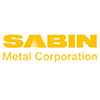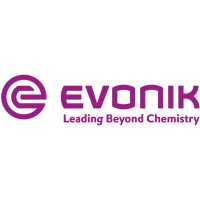-
Johnson Matthey licensed processes
A portfolio of advanced process technologies for global markets. Johnson Matthey (JM) develops and licenses proprietary process technologies. We also offer collaborating companies an extensive range of technology development, process design and engineering skill. For over thirty years JM has been engaged in innovative DAVY™ licensing development. Our comprehensive expertise of catalysis and reaction engineering has been tailored to the production of a wide range of chemicals ...
-
Cost-effective SOx reduction solution for full-combustion FCC units. Reducing SOx emissions has become increasingly challenging in many parts of the world. Depending on the location, SOx emission limits are defined at the refinery level as bubble limits; at the individual emissions source; or, in some cases, by the concentrations in the atmosphere in the vicinity. In light of these challenges, many refineries have successfully used SOx additives for reducing overall sulfur ...
-
KOC-15™- Flexible and effective way to lower afterburn in your FCC unit
KOC-15 additive is Albemarle’s most widely used platinum-based combustion promoter, and is commercially proven to provide many refiners with a reliable, low-cost and flexible solution to afterburn and excess carbon monoxide (CO) emissions. In the regenerator, the coke (carbon) on the spent catalyst is burned to form carbon dioxide (CO2). During combustion of carbon to CO2, CO forms as an intermediate. The conversion of carbon to CO in the presence of oxygen occurs rapidly; ...
-
Low and zero rare-earth FCC catalysts
Rare-earth metals are an important component of FCC catalysts, as well as being a key raw material for many strategic industries with applications ranging from military devices to electronic components. In addition, they are essential constituents in newly evolving green technologies, such as hybrid cars and wind turbines. Rather ironically, rare-earth metals are not so rare, however they tend to be concentrated in hard to extract ore deposits. As a result, the world’s ...
-
Albemarle’s low rare earth technology (LRT) products. Driven by its goal to provide customers with comprehensive, economic catalyst solutions and the surge in global rare earth prices, Albemarle has developed and commercialized a range of LRT products. The catalysts available for the VGO market are: - GO™ LRT for maximum activity - AMBER™ LRT for maximum transport fuels. The catalysts available for the residue market are - UPGRADER™ LRT for maximum ...
-
Maximize the value of your naphtha feedstocks and downstream processes
New solutions for changing needs Lighten the burden of heavy feedstocks with Topsoe catalysts, process designs and technologies. If your refinery is like most, you’re under pressure to squeeze more value out of heavier feedstocks, and this presents new challenges for catalysts. To name just one example, increasing use of coker feedstocks has led to higher silica and nitrogen levels in the naphtha streams, requiring catalysts with superior HDN activity and greater surface ...
-
MD FCC Catalysts - boosting middle distillates production in FCC
Maximizing middle distillates in FCC units. A range of catalysts is available from Albemarle for increasing the production of middle distillates in the FCC process while retaining the many other attractive features of this versatile bottom-ofthe- barrel upgrading process. The key to success is to adjust the catalyst properties for maximum production of LCO while maintaining maximum bottoms (slurry oil) destruction and good product quality. The middle distillate catalyst family ...
-
NADIUS™ 4G is the latest generation of Grace’s market-leading NADIUS™ catalyst family for hydrotreated and straight-run VGO feed applications. NADIUS™ 4G, an extension of the NADIUS™ catalyst family, is a component of the EnhanceR™ technology platform, which is the market leader in the EMEA region. NADIUS™ 4G incorporates new technologies that were developed during the extensive Grace R&D program that was initiated as a result of ...
-
Fluid Catalytic Cracking (FCC) technology for reducing gasoline sulfur. BASF produces NaphthaClean technology designed for the reduction of sulfur without lowering gasoline production Premium Technology Based on the combination of BASF’s award-winning and commercially-proven Distributed Matrix Structures (DMS) technology and sulfur reduction technology, NaphthaClean gives the refiner both maximum gasoline production and maximum gasoline sulfur reduction. This technology ...
-
NEKTOR™4G is the latest generation of Grace’s marketleading low coke NEKTOR™ for residue FCC feed applications. NEKTOR™ 4G is manufactured using the Grace EnhanceR™ Technology Platform, and is an extension of the NEKTOR™ catalyst family, which is the market leader in the EMEA region. NEKTOR™ 4G incorporates new technologies that were developed during the extensive Grace R&D program that was initiated as a result of the tight oil ...
-
OptiFuel™ technology and Albemarle coker additives
Reduced coke yield and increased operating flexibility. For many years, delayed coking units have played an important role in oil refineries as one of the most cost effective processes to convert vacuum residue into more valuable products. The delayed coking yields are the result of thermal reactions and are mainly a function of feed properties and operating conditions such as furnace outlet temperature and drum pressure; however, this process results in coke yields from 20-40% ...
-
Magcat Catalysts produce up to 15% more syngas through the steam reforming process. Magma form their own catalyst carrier utilizing polymer ceramic technology rather than the traditional pressure method, providing higher intrinsic strength, greater geometric surface area and surface texture. The “Golf Ball” shape and texturing creates a % improvement in active surface area. That combined with enlarged near surface porosity and ENHANCER™ Nickel crystal promoter, delivers ...
-
Precious metal bearing catalyst recycling expertise
Refining, Precious Metals & Recycling. We recover and refine precious metals from hydrocarbon and petroleum processing catalysts. Also, our proprietary Pyro-Re® process o ffers the only pyro-metallurgical recovery of rhenium in the industry. With it, we recover total rhenium content from spent semi-regenerative and cyclic fixed-bed hydrocarbon processing catalysts–and get you a full return. With best-in-class techniques and over seven decades of experience, we deliver the ...
-
Excel® Technology: The Sustainable Solution for HydroProcessing Catalysts
Unveil the path to sustainable catalyst processes with Excel® Rejuvenation Technology! Join us as we delve into the art of catalyst rejuvenation, uncovering the means to propel your processes towards enhanced sustainability and waste reduction. Learn how to steer your operations away from wasteful practices and embrace sustainability using Evonik's Excel® Hydroprocessing Catalysts solutions. Our certified Life Cycle Assessment (LCA) lays bare the potential emissions you can ...
-
Structured Catalyst for Steam Methane Reforming
Join this webinar to learn about the benefits of ZoneFlow Structured Catalyst for Steam Methane Reforming. Honeywell UOP and ZoneFlow Reactor Technologies recently conducted pilot plant testing of the ZoneFlow Structured Catalyst in a large-scale pilot plant at Université Catholique de Louvain in Louvain-la-Neuve, Belgium. In this free webinar, you will have the opportunity to learn about the technology and benefits that were seen in the pilot test run at near-commercial levels: • ...
-
Navigating Complexities of Renewables Processing
Refineries are shifting away from producing traditional fuels to remain relevant, compliant and profitable. Join us to learn more about recent developments in renewable feedstocks processing. In this webinar from Ketjen, you will gain an understanding of the regulations and drivers that shape the renewables market. You will also have a chance to learn about operational challenges you may face while processing feedstocks with various amounts and grades of HVO or waste plastic ...
-
Optimizing the value of your unloaded catalyst
The metals contained in spent catalysts offer a valuable follow-on revenue source, but how can you be sure to achieve a fair settlement or receive top dollar? You also need to balance demands of sustainability and lowered environmental impact with ease of recovery and settlement. This webinar gives you an introduction to the precious and base metal management cycle in catalysts and specifically provides you with tips for ensuring a high quality and accurate precious metal settlement, ...
-
An introduction to Sinopec Hydrocracking Technologies
This webinar gives you an overview and understanding of hydrocracking and its applications, with an emphasis on technologies and catalysts developed by Sinopec and its research arm, Sinopec Fushun Research Institute of Petroleum and Petrochemicals (Sinopec FRIPP). You will first get an introduction to hydrocracking including feed processing and target output products. Commercial considerations include market share and reference installations such as 40 hydrocracking units designed ...
-
Technologies to enhance Ethylene production
In this presentation, three technologies will be introduced. This first is swirling element radiant tube (SERTTM) technology for steam cracking furnaces. In this technology, you will find how heat transfer theory is applied to overcoming the challenges of cracking pyrolysis to meet targets. Successful commercial cases will demonstrate the technical advantages of SERTTM technology. Cracking furnaces with SERTTM technology have longer operating days, lower tube wall temperature ...
-
High-Performance Tail-Gas Treating
Discover the benefits of applying the latest technology in modern, low-temperature Shell Claus offgas treating (SCOT™) units. See how next-generation, low-temperature SCOT catalysts can help extend cycle life, lower energy costs and ensure regulatory compliance, even with the most difficult feeds and conditions. In this webinar you will: - Learn why modern tail-gas treating units are being designed without an inline burner, and the impact this has on inlet temperatures and, ...
-
Maximising naphtha through hydrocracking: Refinery of the future
Globally the demand for petrochemicals is increasing at rates nearly 1.5 times GDP. In regions where there is a heavy investment in large-scale para-xylene capacity there is a significant demand for naphtha. However not all naphtha is suitable to produce aromatics. Heavy naphtha is required, but it is in limited supply. This is where the Honeywell UOP UnicrackingTM process becomes the key enabler to petrochemical production. By installing one, or a combination of Unicracking ...



























